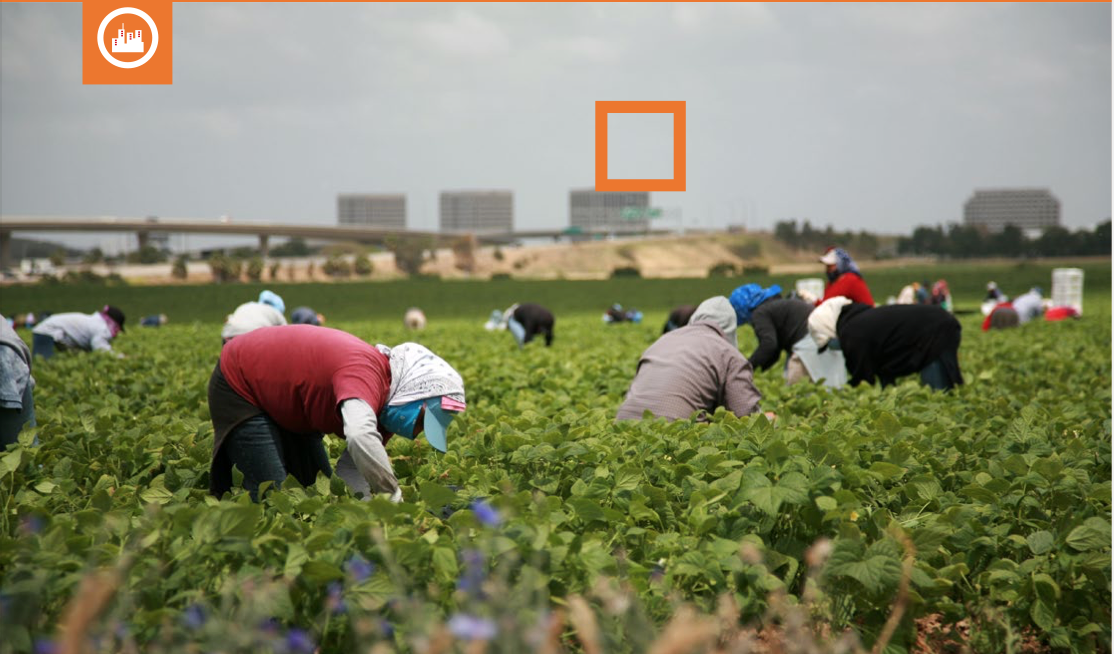
Engaging the Private Sector to End Human Trafficking. A Resource Guide for NGOs.
Anti-trafficking non-governmental organisations (NGOs) and networks have so far not focused much on engaging the private sector on its role in trafficking in human beings (THB). Because the legal definition of human trafficking has historically been restricted to exploitation in the sex industry, anti-trafficking action has, until recently, been largely tackled and framed in the context of women’s rights, debates on sex work and within criminal law. This changed in 2000 when the UN Palermo Protocol extended the definition of human trafficking to include all forms of forced labour and slavery-like practices in all economic sectors. This has made labour law and relevant stakeholders such as trade unions central to this issue, and has merged debates on human trafficking and forced labour. The EU Anti-trafficking Directive from 2011 reaffirmed this.
The legacy of human trafficking being regarded as a problem that is exclusive to the sex industry is still apparent. The majority of the cases identified and registered still relate to exploitation in the sex industry, even though it is known that labour exploitation occurs in many different sectors. More awareness and attention is needed for all forms of human trafficking, which is often still framed as only a criminal justice issue, whilst the relevance of labour rights is underreported. This is also perpetuated by the fact that anti-trafficking organisations – and indeed other stakeholders such as service providers, municipalities and government institutions – have developed collaborative and well-functioning multi-stakeholder networks specifically dealing with prevention and direct support for trafficked persons. Anti-trafficking NGOs, such as members of the European anti-trafficking network La Strada International (LSI), often provide services for trafficked people, such as shelter, medical and legal advice, as well as advocacy directed at states to ensure improved legislation for the rights of trafficked people. Their networks include law enforcement, judiciaries, criminal law experts, social services (women’s shelters, psychologists) or immigration officials and organisations that directly deal with the identification, support, court cases, return and reintegration of trafficked persons. The framing of human trafficking in these networks and practices therefore naturally refers to the focus of these stakeholders and relevant laws.
The extension of human trafficking so that it is generally understood to include labour exploitation
in sectors other than the sex industry has meant that the private sector has become seen as a more important stakeholder in anti-trafficking work. This has now been recognised by all relevant organisations dealing with the fight against human trafficking, as the above quote by the UN Special Rapporteur on trafficking in persons indicates.
Anti-trafficking NGOs have also started to acknowledge the need to engage the private sector. First, as increasing requests for assistance are received for those exploited in different labour sectors; and second, as they are being confronted with cases in which the private sector plays a role in the exploitation of people. One example of this is the tree workers case in the Czech Republic, where at least 2,000 workers, mainly from Vietnam, but also from Romania, Bulgaria, Hungary, Slovakia and the Ukraine, have been forced to work under very harsh conditions during 2009 and 2010 in the state forest of the Czech Republic, recruited and employed by legal agencies.
In the framework of the NGOs & Co project, LSI carried out a survey in 2013, among 27 European anti-trafficking NGOs, including LSI members, assessing their overall level of engagement with the private sector, as well as the perceived obstacles, enablers and lessons learned in partnering with businesses. This assessment revealed that, although 80% of the respondent NGOs have experience in targeting the private sector and claim to see the private sector as one of their key target groups, less than half of the participants in the survey recognised the importance of such work in their Strategic Plans, and only 11% (3 out of 27 organisations) have a specific staff person dedicated to engaging with the private sector. In short, there is little capacity for engagement or indeed knowledge of the different strategies of private sector engagement applied in other civil society networks.
This Resource Guide aims to close that gap by providing guidance and background information
for anti-trafficking NGOs in Europe on the role of the private sector in trafficking in human beings.
It provides facts and figures on human trafficking and forced labour in Europe, an explanation of the overlaps and differences in the legal definitions of human trafficking and forced labour, as well as numerous case studies on human trafficking and forced labour in Europe throughout the text. It also provides some strategic guidance on whether and how anti-trafficking organisations can best engage with the private sector, if they choose to involve this new stakeholder in their work.
To read more, please click here.
